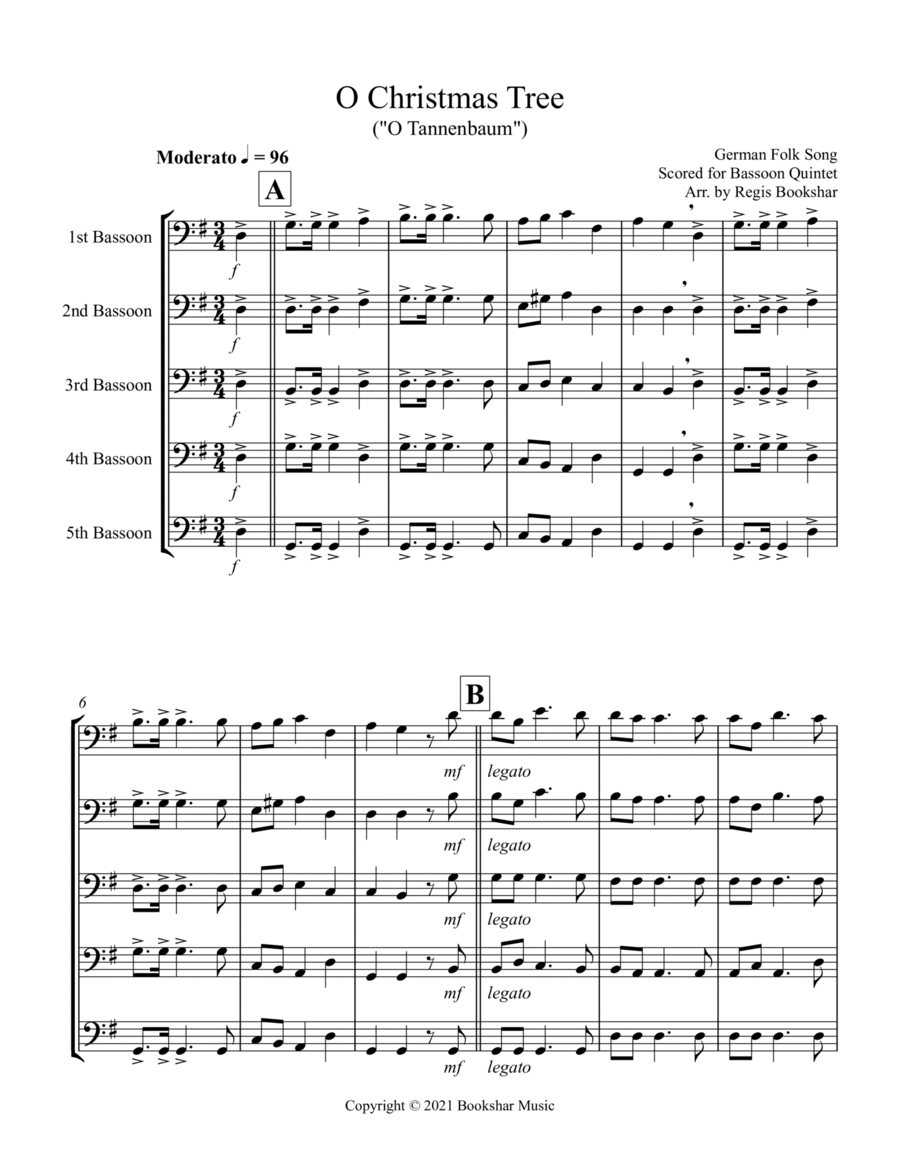Woodwind Ensemble Bassoon - Level 3 - Digital Download SKU: A0.813940 Composed by German Folk Song. Arranged by Regis Bookshar. Christmas,Instructional,Multicultural,World. 8 pages. Regis Bookshar #6631129. Published by Regis Bookshar (A0.813940). Bassoon Quintet - Intermediate - Digital Download. This arrangement of O Christmas Tree, or in German, O Tannenbaum, would be a fabulous addition to any music library and could be performed for Christmas concerts and recitals, and, perhaps, even church services. It is equally suitable for junior and senior high school students and even older musicians. Depending on their ability, younger musicians would also enjoy playing this selection. Included are a score and a complete set of part (8 pages). This selection is one of the many arrangements from The Regis Bookshar Trumpet Ensemble's extensive music library which are being made available for the first time.O Christmas Tree is a German Christmas song based on a traditional folk song which was unrelated to Christmas. The custom of the Christmas tree developed in the course of the 19th century, and the song came to be seen as a Christmas carol. The modern lyrics were written in 1824 by the Leipzig organist, teacher and composer, Ernst Anschutz. A tannenbaum is a fir tree. The lyrics do not actually refer to Christmas or describe a decorated tree. Instead, they refer to the fir's evergreen quality as a symbol of constancy and faithfulness.In this arrangement of O Christmas Tree, Regis Bookshar has kept the basic outline of this familiar song, but has inserted a short interlude, which brings to mind the sound of alphorns, or alpenhorns, instruments which may be made from red pine, or fir trees. and are used by mountain dwellers in the Bavarian Alps. I think that students will enjoy this imitative section in the song. In addition to this version for a Bassoon Quintet, there are also other arrangements of O Christmas Tree available for a variety of instrumental ensembles. Please take the time to look for other versions of this composition. You may find something else that might also suit your needs.I would also encourage you to search for other arrangements by Regis Bookshar, as well, as there are numerous arrangements in a wide variety of styles, also available for purchase. You may find something else which might interest you. Please continue to check periodically because new arrangements are being added as often as possible. I'm certain that this wonderful arrangement of O Christmas Tree will continue to entertain both performers ands audiences alike for years to come.
